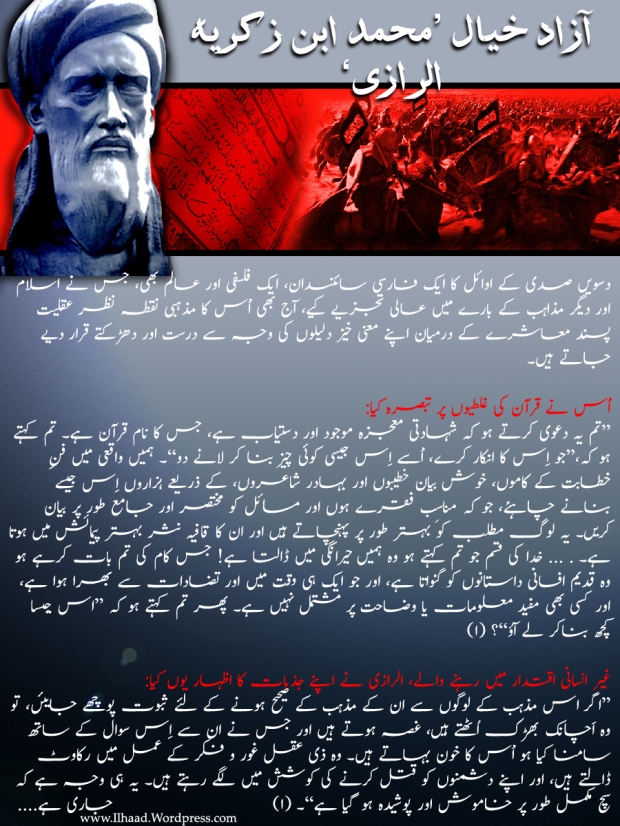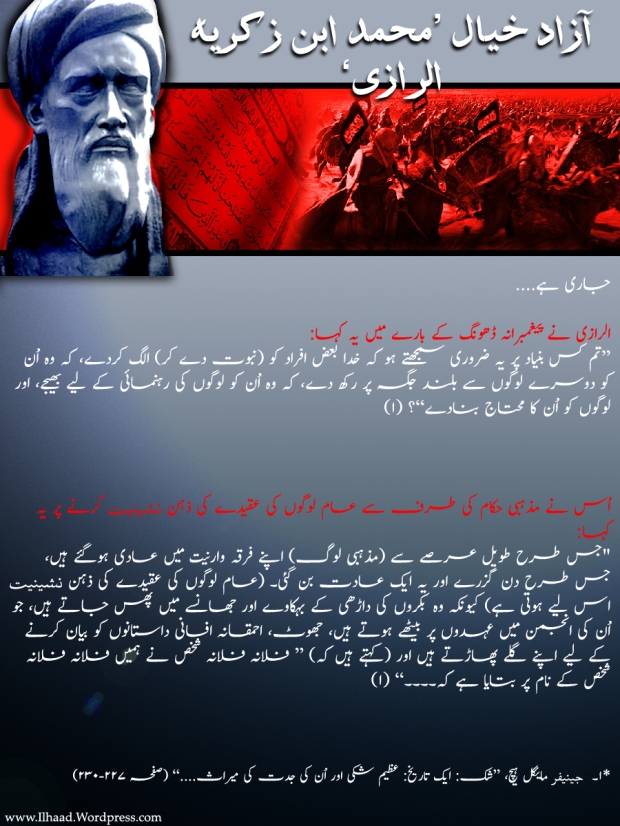Azad Khayal “Muhammad Ibn Zakariya Al Razi”, The freethinker.
English:
A Persian scientist and even philosopher and a scholar of early tenth century. He made great analysis about Islam and other religions, his religious approach is still held valid and vibrant among the rationalist society because of its significant reasoning.
He made comments on Quranic errors:
You claim that the evidentiary miracle is present and available, namely, the Koran. You say: “Whoever denies it, let him produce a similar one.” Indeed, we shall produce a thousand similar, from the works of rhetoricians, eloquent speakers and valiant poets, which are more appropriately phrased and state the issues more succinctly. They convey the meaning better and their rhymed prose is in better meter. … By God what you say astonishes us! You are talking about a work which recounts ancient myths, and which at the same time is full of contradictions and does not contain any useful information or explanation. Then you say: “Produce something like it”?(1)
Living in the inhumane rule, Al-Razi expressed his feelings:
“If the people of this religion are asked about the proof for the soundness of their religion, they flare up, get angry and spill the blood of whoever confronts them with this question. They forbid rational speculation, and strive to kill their adversaries. This is why truth became thoroughly silenced and concealed.”(1)
Al-Razi spoke on prophetic drama:
“On what ground do you deem it necessary that God should single out certain individuals [by giving them prophecy], that he should set them up above other people, that he should appoint them to be the people’s guides, and make people dependent upon them?”(1)
He spoke on indoctrination of common people by Religious authorities:
“As a result of [religious people] being long accustomed to their religious denomination, as days passed and it became a habit. (Indoctrination of common people were done) Because they were deluded by the beards of the goats, who sit in ranks in their councils, straining their throats in recounting lies, senseless myths and (say) “so-and-so told us in the name of so-and-so…”(1)
*1:- Jennifer Michael Hecht, “Doubt: A History: The Great Doubters and Their Legacy of Innovation ..”, (Page 227-230)
